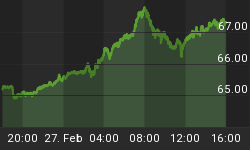Trillions of dollars of market value could go up in smoke due to climate change.
The damage hits the global economy in multiple ways. The first is the most obvious. Physical damage from more powerful natural disasters is on the rise. 2017 and 2018 were the costliest back-to-back years for economic losses related to natural disasters, according to risk and reinsurance firm Aon.
But the danger grows worse when the physical damage starts to reprice portions of entire asset classes. One glaring example is the real estate market along coastlines, which will see both physical damage and a dramatic repricing as the threat becomes increasingly clear. That happens through a variety of mechanisms – people move away, zoning ordinances restrict building, insurance companies withdraw support, investors withdraw capital, etc.
If sea levels rise by 6 feet by 2100, an estimated $900 billion in U.S. homes “would be literally – and in turn financially – underwater,” the Center for American Progress (CAP) wrote in a November report.
The end result is the sector becomes worth a fraction of what it once was. And this is just one aspect of climate change affecting just one particular sector.
This gets to another aspect of climate risk. Governments are surely going to act – eventually – to address climate change, which could transform what is and isn’t valuable. A new report from Principles for Responsible Investment finds that the inevitable tightening of climate policies will wipe out $2.3 trillion in value from a range of fossil fuel companies. Principles of Responsible Investing (PRI) is a group representing investors with $86 trillion of assets under management. Related: Canada Looks To Become A Major Source For Critical Minerals
Industry groups always point out that as long as there is demand, they will continue to meet that demand. However, as the impacts of climate change grow worse, the likelihood of a policy backlash grows in corresponding fashion. The world is now on track to warm by 3 degrees Celsius by the end of the century, double the rate that scientists and governments are aiming for.
“It’s highly improbable that governments will be allowed to let the world glide to 2.7C without being compelled into forceful action sooner,” Fiona Reynolds, CEO of PRI wrote last month. PRI sees an “inevitable policy response” by 2025, and because the industry has dragged its feet and because governments have delayed action, the policy response will likely be “forceful, abrupt and disorderly.” The energy transition could have been much smoother had action been taken years ago.
PRI says that the fossil fuel sector could lose a third of its current value as high-cost coal, oil and gas reserves become stranded assets. According to historian Adam Tooze, there is between $1 and $4 trillion in energy assets that could become stranded, and $20 trillion in the broader industrial sector.
But an even larger concern is how the long list of impacts affecting a variety of industries that are all interwoven infects the broader financial system. “Stress at a large, complex, and interconnected financial institution—a firm that is systemically important—or correlated stress across smaller firms all exposed to the same risks could transmit stress throughout the financial system,” CAP wrote. Related: Will Bezos Buy The Seattle Seahawks?
The outlook that there is a disorderly disruption across a class of financial assets is becoming increasingly mainstream. “This kind of scenario—protracted denial followed by panic-driven decarbonization—is what concerns the central bankers most of all. And it is closest to our reality,” Adam Tooze wrote in Foreign Policy earlier this year.
In fact, there is speculation that the combined effect of a massive re-pricing of assets with the growing physical damage related to climate change could set off a financial crisis. Banks, insurance companies and other financial intermediaries are enmeshed in the oil and gas complex. As those assets are written down in value, the financial toll could multiply. Trillions of dollars in value could be erased.
For now, governments continue with relatively meager reforms, although the extent of inaction varies depending on the government. With the rules still largely on a business-as-usual track, investment continues to pour into sectors that are at risk from climate disruption. The oil industry has funneled $50 billion into projects that are not aligned with the Paris Climate agreement since 2018 – projects that would become unviable in a carbon-constrained world.
By Nick Cunningham of Oilprice.com
More Top Reads From Safehaven.com:
















